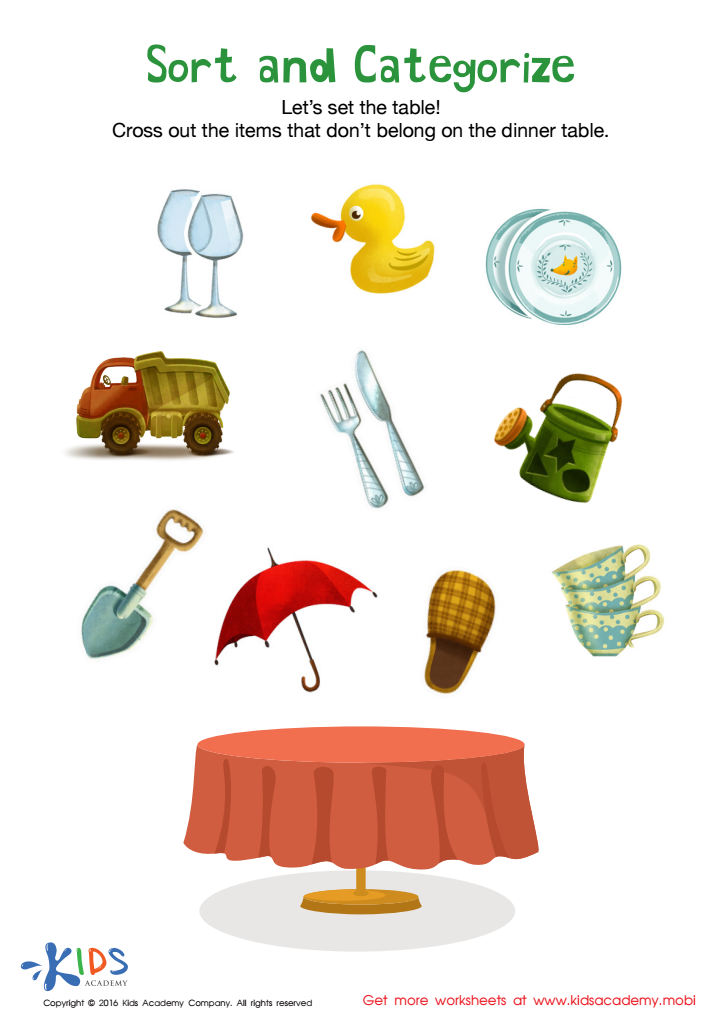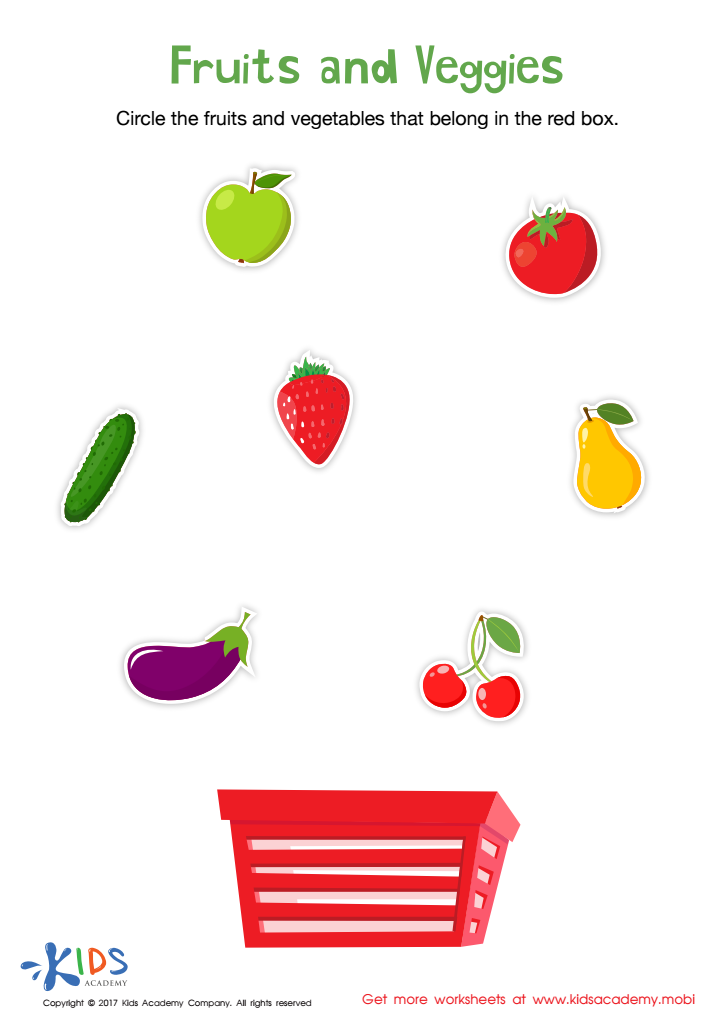Categorization skills Normal Math Worksheets for 5-Year-Olds
10 filtered results
-
From - To
Enhance your 5-year-old's learning journey with our engaging categorization skills normal math worksheets. Designed to make math fun, these age-appropriate activities focus on helping young learners group objects based on size, shape, color, and type. Each worksheet encourages children to think critically as they identify and categorize items, strengthening their cognitive and analytical abilities. Perfect for home or classroom use, these printable resources are a great way to support early math development. Help your child build a strong foundation in categorization skills while promoting creativity and independence. Let the adventure in learning begin with our captivating worksheets!
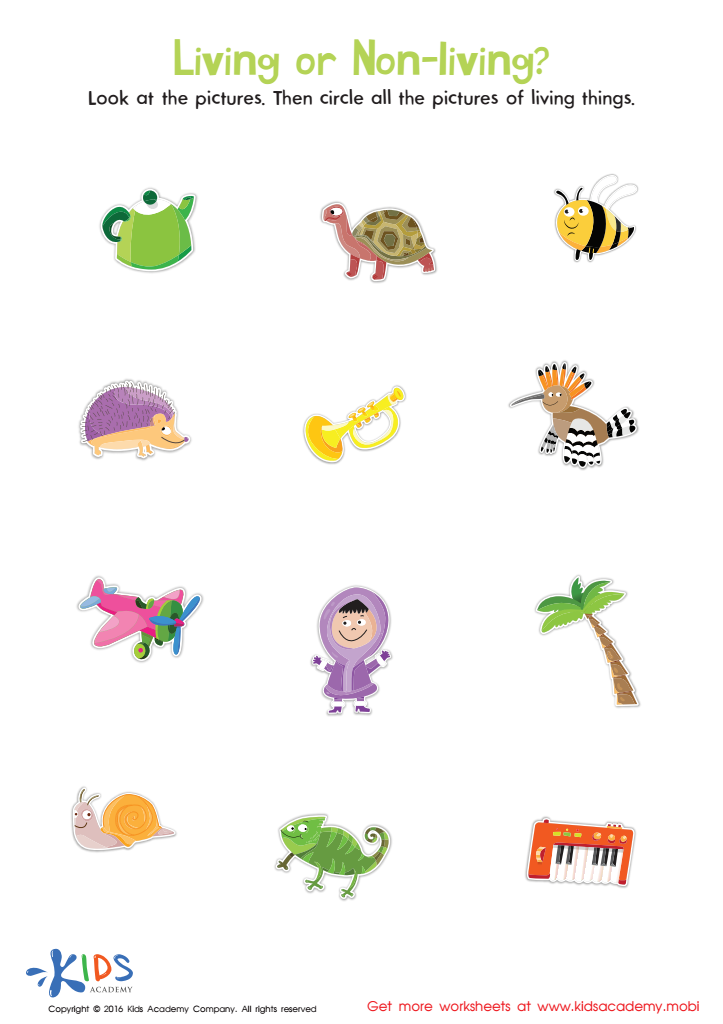

Identifying Living and Non–living Things Sorting Worksheet
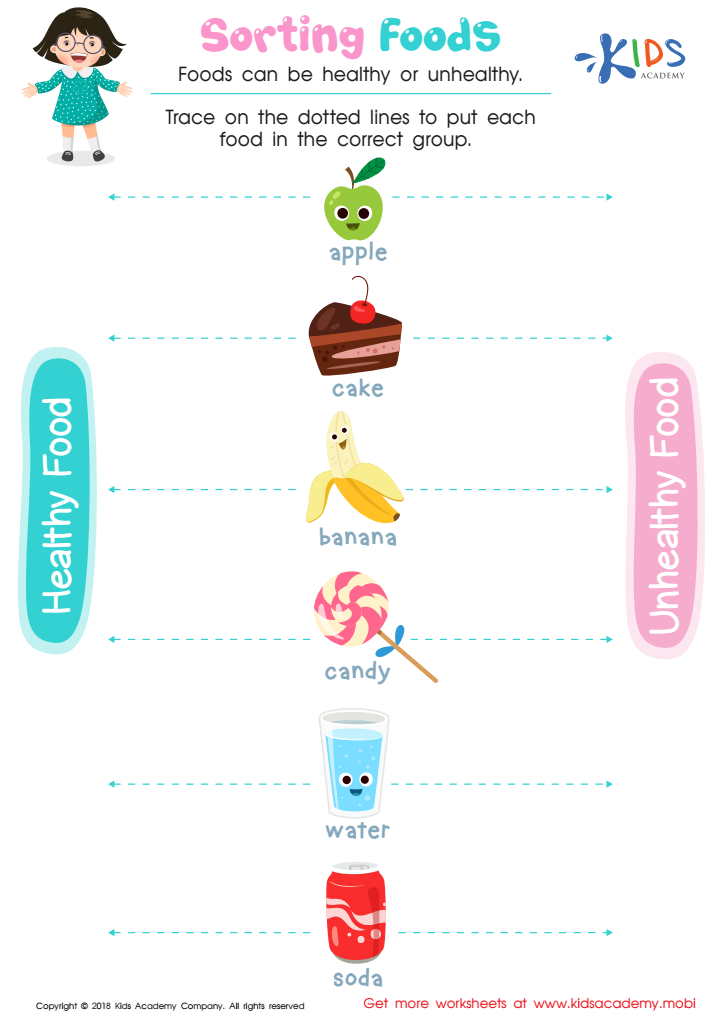

Sorting Food Worksheet


Sorting Animals in 3 Groups Worksheet
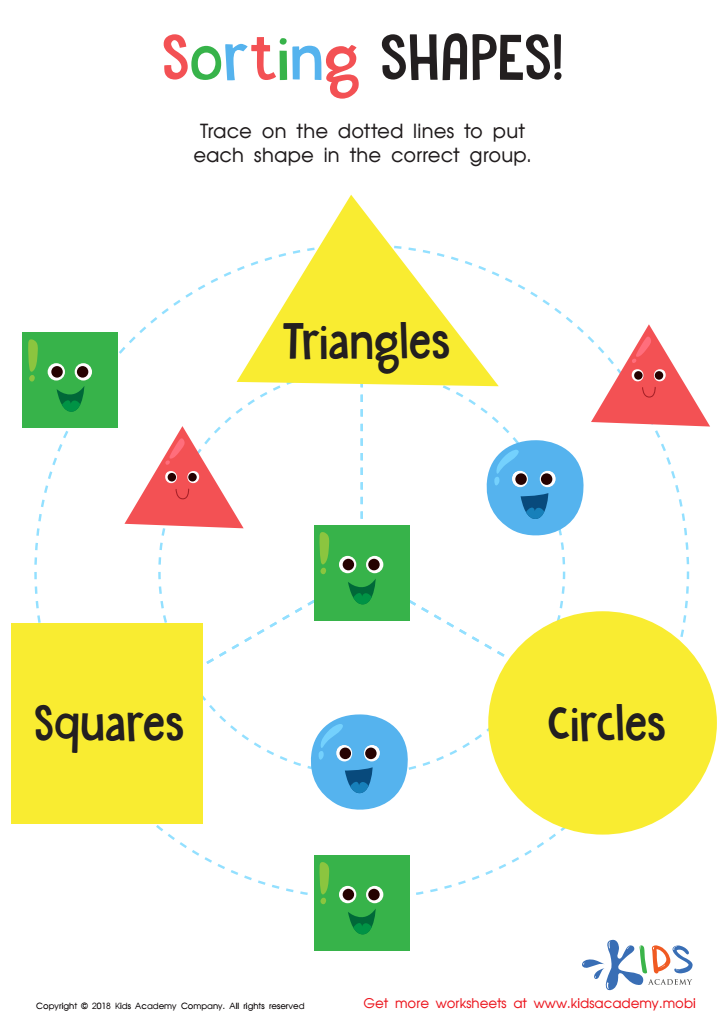

Sorting Shapes - Part 3 Worksheet


Matching: Classifying Toys by Size Worksheet
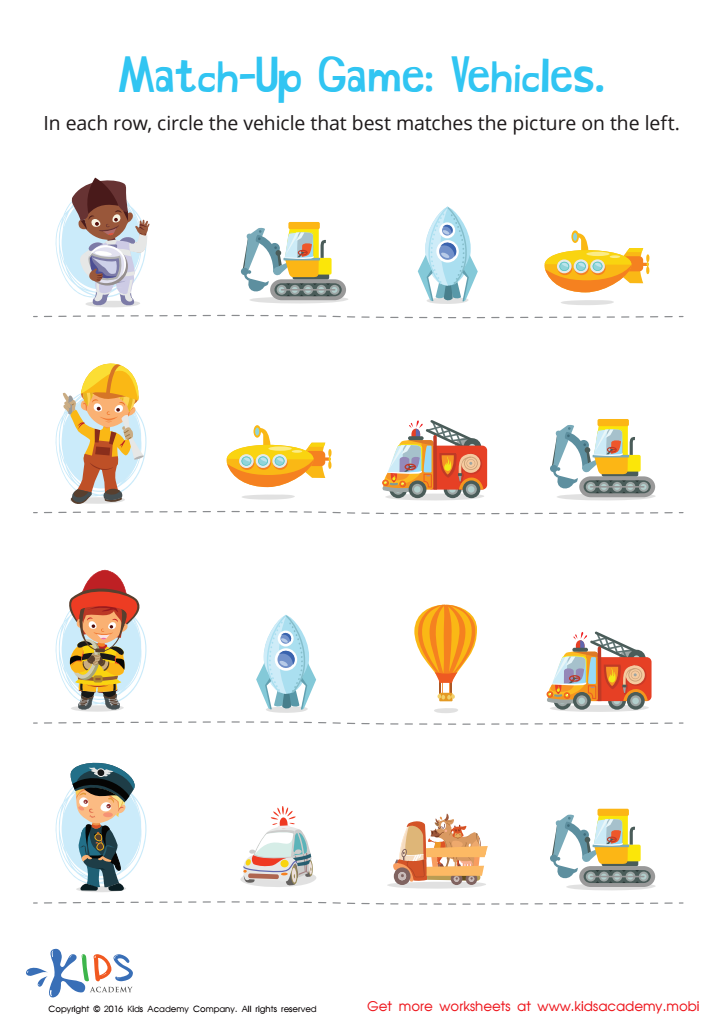

Vehicles Worksheet


Logic Game Sorting Worksheet
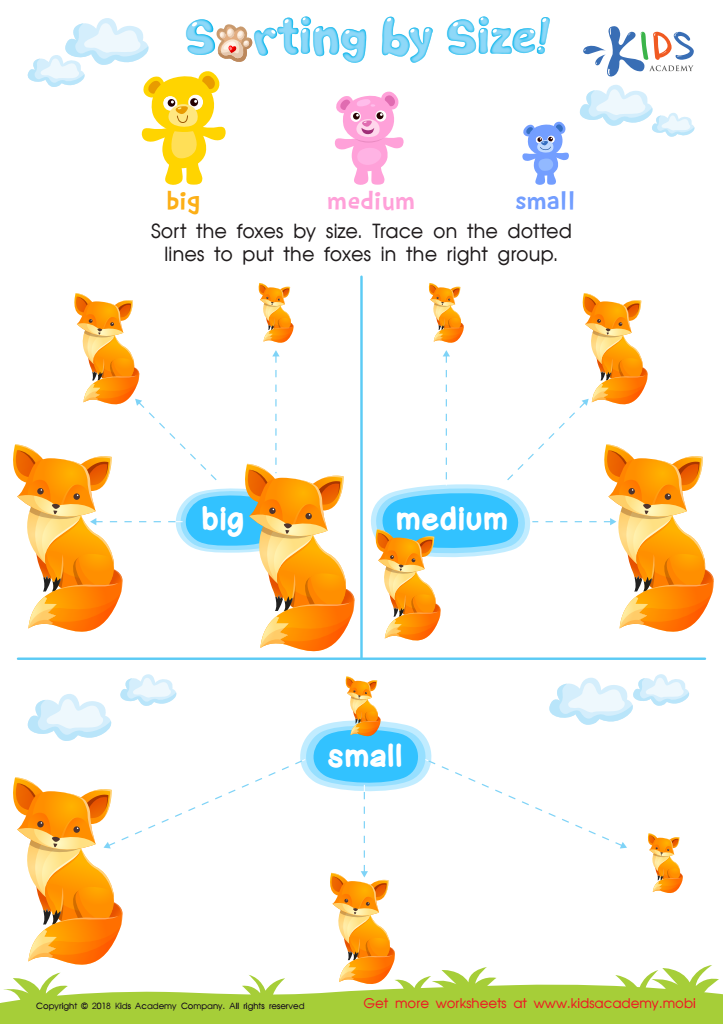

Sorting by Size Worksheet
Categorization skills are essential for 5-year-olds as they lay the foundation for critical thinking and problem-solving abilities in mathematics. Understanding how to categorize helps children grasp mathematical concepts such as counting, sorting, and recognizing patterns, which are vital in early math curriculum. When children can group objects based on attributes like color, shape, or size, they enhance their cognitive skills and develop reasoning abilities that are crucial for later math success.
Parents and teachers should care about these categorization skills because they promote active learning through exploration and discovery. By sorting and classifying objects, children begin to understand relationships and differences, skills that are transferable to higher-level mathematics. Moreover, these activities encourage creativity and imagination as children engage with their environment.
Additionally, focusing on categorization fosters language development. As children describe their categories and reasoning, they enhance their vocabulary and communication skills, further developing their overall academic competence. Engaging parents in this process creates a collaborative effort to boost their child's development, making learning more effective and enjoyable. Ultimately, strong categorization skills not only strengthen mathematical understanding but also contribute to holistic child development, setting the stage for academic success in later years.
 Assign to My Students
Assign to My Students

